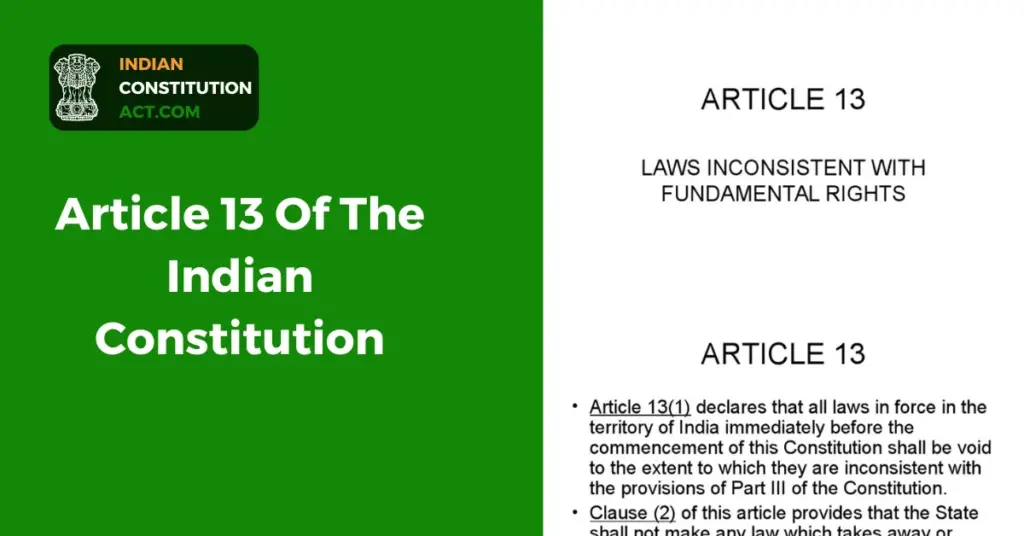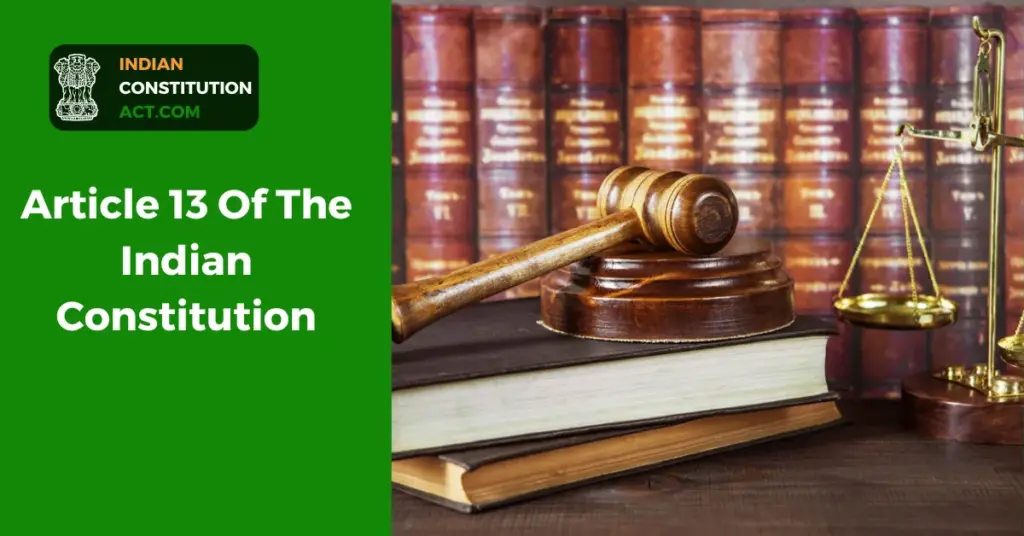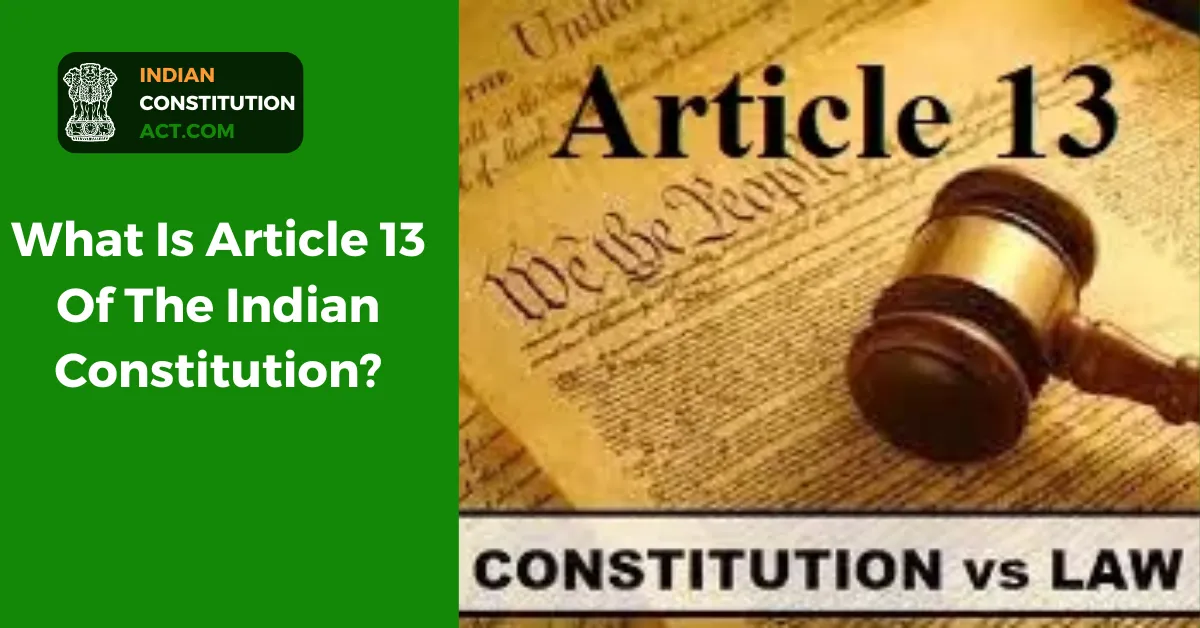Article 13 of the Indian Constitution aids the court and citizens to keep their powers of the legislature under preview. It is an important article of our Constitution. This article described the means for judicial review. This article of the Constitution enjoins a duty on the state of India to respect and implement the fundamental right. This article also confers the power of the courts to declare a law or an act void if it infringes the fundamental rights. This blog describes this entire article, so read it carefully.
Table of Contents
What Does Article 13 Of The Indian Constitution Defines?

Article 13 of the Indian Constitution defines “Laws inconsistent with or in derogation of the fundamental rights.”
(1) All laws in force in the territory of India immediately before the commencement of this Constitution, in so far as they are inconsistent with the provisions of this Part, shall, to the extent of such inconsistency, be void.
(2) The State shall not make any law which takes away or abridges the rights conferred by this Part and any law made in contravention of this clause shall, to the extent of the contravention, be void.
(3) In this article, unless the context otherwise requires,—
(a) “law” includes any Ordinance, order, bye-law, rule, regulation, notification, custom, or usage having in the territory of India the force of law;
(b) “laws in force” includes laws passed or made by a Legislature or other competent authority in the territory of India before the commencement of this Constitution and not previously repealed, notwithstanding that any such law or any part thereof may not be then in operation either at all or in particular areas.
(4) Nothing in this article shall apply to any Amendment of this Constitution made under article 368.
Also read: What Is Article 12 Of The Indian Constitution?
What Does Article 13 Of The Indian Constitution Do?
Article 13 of the Constitution 13 works in aiding the court and citizens to keep the powers of the legislature under preview. The judicially plays an important part as they play the role of a protector of constitutional rights. The main responsibility for the implementation of the rule of law lies in the judiciary.
This article enjoins the duty of the Indian state in terms of respect and also implements the fundamental right. This article also confers the power of the courts to declare a law or an act void only if it infringes the fundamental rights.
Major Points of Article 13 Of The Constitution of India?
- The Artice 13 of the Indian Constitution upholds the supremacy of the Indian constitution
- Paves the way to judicial review.
- Enables us to review the pre-constitutional and existing laws
- The power of the judiciary is considered to be supreme in guarding and enforcing the fundamental rights guaranteed in the Indian constitution under part III.
- Is a restriction /check on parliament and state legislatures. • Rights and freedom of people get protection from the incidental invasions of the state.
Famous Case Law Of Article 13 Of The Indian Constitution

A.K. Gopalan v. State of Madras, air 1950
- In this case, section 13 of the Preventive Detention Act, of 1950 was challenged
- Section 14 says that if any person is being detained under this Act then he or she may not disclose the grounds of his or her detention in court of law.
- This particular statement is inconsistent with that of fundamental rights as per Article 22 of the Indian constitution
- Thus if we do apply the doctrine of severability here the whole act (preventive detention
act,1950) would not be declared as void but only section 14 of the act would be declared as void as it is inconsistent with the fundamental rights.
